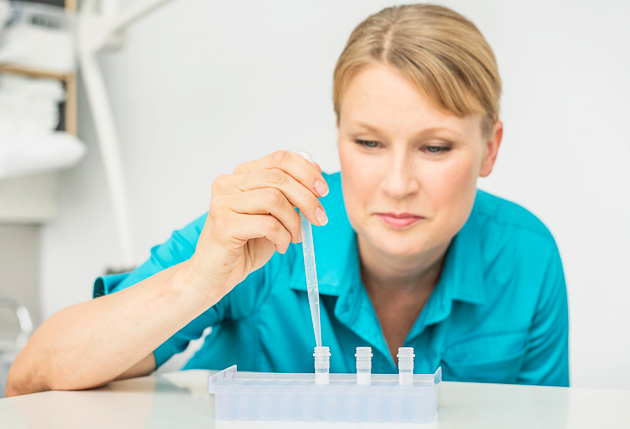“The future of cancer treatment” is already a reality in Finland – gene profiling may benefit all cancer patients
1.2.2022 Categories: Press releases
– Gene profiling benefits approximately 20% of cancer patients by providing support for decision-making regarding medication and treatment, and it can be helpful for all cancer patients. In some cancers, gene profiling directly guides the selection of drug therapy; some drugs, for example, are only effective if the tumor has a specific mutation. However, the benefits of gene profiling vary greatly depending on the type of cancer: in mesotheliomas, for example, the benefits are slight, whereas all patients with non-small cell lung cancer benefit from gene profiling as part of the planning of the treatment, Juha Kononen says.
Compared to other hospitals in Finland, Docrates makes the most use of gene profiling of cancer tumors. At Docrates, extensive molecular diagnostics and specialist meetings discussing treatments based on gene diagnostics are an essential part of drawing up a treatment plan. Kononen, who started as the Chief Clinical Director at the Cancer Center at the beginning of this year, is one of the world’s leading specialists in gene profiling.
– Treatment based on gene diagnostics is the future of cancer treatment, but at Docrates, it is already a reality. In Finland, gene profiling is already commonly used in children’s and adolescents’ cancers and haematological cancers, but quite rarely in the cases of adults’ solid tumors. Smaller gene panel tests have also become routine, and they are performed in all hospitals across Finland. However, comprehensive gene profiling is not usually carried out, even though it would allow to prepare for the future – when a new drug becomes available, it could immediately be taken into use. A comprehensive gene profile can reveal much more about a tumor’s biology than a few individual gene tests, which is why the method will become more common. Genetic information is used to develop more effective and accurate drugs, and an increase in the number of treatments based on gene diagnostics is on the horizon, he continues.
Gene profiling challenges the traditional approach to cancer treatment
In addition to lung cancer, genetics are currently applied in the treatment of breast cancer, melanomas, certain haematological cancers, gastrointestinal stromal tumours, colon and rectal cancers and other abdominal cancers as well as metastatic cancers, when the original location of the tumor cannot be determined. According to Kononen, individuality is key in diagnosing and treating cancers: each occurrence of cancer is genetically unique in different patients, which is why a targeted drug that is helpful for one patient may not have the same effect on another.
– To determine the best possible individual treatment, it is necessary to know everything there is to know about the patient’s tumor: where the tumor has spread and what kind of gene profile it has. Gene profiling challenges the traditional approach in which lung cancer is treated with lung cancer drugs and prostate cancer with prostate cancer drugs, for example. New gene tests add more value particularly to the treatment of rarer types of cancer which are more difficult to treat and for which conventional treatments have not been effective. Gene profiling is also very often used to rule out treatments, which means that time is not wasted on unnecessary treatments or drugs. It saves time, effort and the patient’s money, Kononen says.
– Our starting point is to examine each cancer individually. In this way, it is also possible to find new treatment options that may prove to be effective. In order to create an individually tailored treatment model for the patient, we can also collect a sample of living cancer cells and examine them, if necessary. Gene profiling diagnostics has massive potential in cancer treatment.
Increased care backlog due to the pandemic
Tumor gene profiling tests done using a tissue sample, blood or saliva are most commonly performed on patients with widespread metastatic cancer. However, according to Kononen, the patient would ideally be examined already at an earlier stage of the disease.
– In this case, we could determine which drugs are not suitable as treatment options, taking into consideration the tumor’s mutation profile. This information is paramount, even if the patient wished to seek treatment elsewhere than at Docrates. These kinds of examinations are particularly topical now, as Covid-19 has caused a lot of so-called care backlog: people have not sought medical attention for fear of the pandemic. I’m worried that, as the pandemic begins to ease, we will be having more widespread cancers than before, because patients have been postponing their examinations, Kononen ponders.
– When we want to do everything we can to help the patient, thorough examinations are in order. As the patients are responsible for the costs themselves, we can openly tell them about the newest examinations and treatments available around the world. Truly individual treatment means leaving no stone unturned and sharing all information with the patient that might offer them even the slightest hope, Kononen says.
Examples of gene tests used by Docrates Cancer Center:
Caris MI Profile
The CMI test specifies a large number of factors, both genes and structures found on the surface of cancer cells or in cancer tissue, i.e. biomarkers, using a sample taken from a tumor. The test result can be helpful in choosing the drug therapy in situations where there is no obvious research-based treatment option.
Read more: www.carismolecularintelligence.com.
OncotypeDX
The Oncotype DX test is used when planning the adjuvant drug therapy for breast cancer in situations where it is judged whether the patient would benefit from chemotherapy or whether it could be discontinued without it worsening the prognosis. The test is done using a tissue sample taken from the breast tumor.
Read more: breast-cancer.oncotypedx.com/en-GB/Patient-Invasive.
Foundation Medicine
The FoundationOne CDx analysis is used to analyse 324 genes associated with cancer. The analysis is very comprehensive because, unlike many other tests, FoundationOne surveys the whole of the genes that are being analysed and detects all types of mutations, even the rare ones. FoundationOne Liquid CDx is a so-called liquid biopsy analysis where a blood sample is used to analyse 324 genes of a tumor’s DNA found in the bloodstream. The liquid biopsy method is particularly useful if it is not possible to obtain a normal tissue sample from the tumor or when the aim is to monitor the patient’s response to targeted drug therapy.
Read more: www.foundationmedicine.fi, www.syovangeenit.fi.












